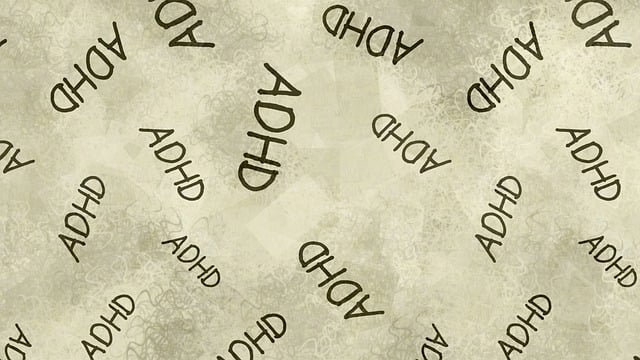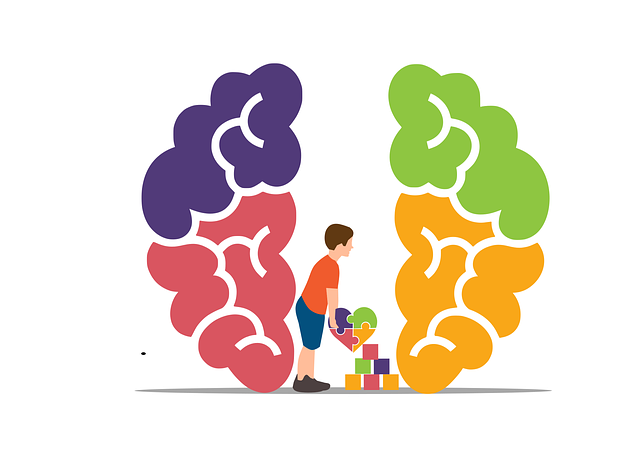Comprehensive mental health education involves teaching about common disorders, causes, symptoms, and treatments, including Arvada Alcohol Abuse Therapy techniques like CBT, DBT, and motivational interviewing. It also addresses societal contexts, breaks stigma through policy advocacy and community support, and fosters empathy for long-term recovery. This holistic approach equips individuals to recognize signs early, offer support, and navigate services, creating a more compassionate society that promotes mental wellness and reduces isolation.
“Uncovering the foundations of a robust mental health education program, this article guides readers through a strategic approach. By ‘Understanding Mental Health Issues’, we lay the groundwork for a comprehensive curriculum addressing diverse concerns. We explore evidence-based strategies to enhance therapy sessions, ensuring effective treatment. Furthermore, ‘Fostering Community Support’ is key to promoting long-term well-being, as seen in Arvada Alcohol Abuse Therapy models. These elements collectively empower individuals and communities, fostering resilience and healthy minds.”
- Understanding Mental Health Issues: Creating a Comprehensive Curriculum
- Implementing Evidence-Based Strategies for Effective Therapy Sessions
- Fostering Community Support and Long-Term Well-Being
Understanding Mental Health Issues: Creating a Comprehensive Curriculum

Understanding Mental health issues is a cornerstone when designing an effective education program. Such a curriculum should encompass various aspects including common mental disorders, their causes, symptoms, and available treatment options. This includes addressing concerns like anxiety relief, depression management, and even Arvada Alcohol Abuse Therapy. Equipping participants with knowledge about the impact of mental health on daily life and relationships fosters empathy building strategies, enabling them to recognize signs early and offer support.
A comprehensive curriculum should also delve into the societal and cultural context of mental health issues. Students need to understand the influence of social norms, systemic barriers, and stigma in accessing mental health services. Incorporating topics such as Mental Health Policy Analysis and Advocacy ensures participants are equipped with knowledge about existing policies, their implications, and strategies for advocating for better mental healthcare. This holistic approach prepares individuals to navigate the complexities of mental health support, fostering a more compassionate society.
Implementing Evidence-Based Strategies for Effective Therapy Sessions

Implementing evidence-based strategies is paramount for effective therapy sessions, especially in addressing complex issues like Arvada Alcohol Abuse Therapy. Programs designed with a robust foundation in scientific research have been shown to yield more positive outcomes for clients. Incorporating techniques such as cognitive-behavioral therapy (CBT), dialectical behavior therapy (DBT), and motivational interviewing can empower individuals to challenge negative thought patterns, develop healthier coping mechanisms, and make lasting behavioral changes. These evidence-based approaches not only enhance the therapist’s ability to provide targeted support but also foster a safe and supportive environment that encourages self-awareness exercises and the exploration of self-care practices.
Moreover, integrating empathy building strategies into therapy sessions is crucial for establishing strong therapeutic alliances. Therapists who model active listening, validate clients’ emotions, and demonstrate genuine understanding create a sense of trust and security. This emotional safety allows individuals to engage more openly in self-reflection, making it easier to identify and address underlying issues. By combining evidence-based interventions with empathy-focused practices, mental health education programs can effectively equip individuals with the tools and resilience needed to overcome challenges related to alcohol abuse and cultivate a healthier lifestyle.
Fostering Community Support and Long-Term Well-Being

Fostering community support and long-term well-being is a cornerstone of any comprehensive mental health education program. By integrating strategies that promote collective care, individuals with mental health challenges can navigate their journeys with enhanced resilience. This involves creating safe spaces where open conversations about mental wellness are encouraged, mirroring the holistic approach offered by Arvada Alcohol Abuse Therapy. Participants learn to recognize and support one another’s struggles, breaking down the isolation often associated with mental illness.
Beyond immediate interventions, these programs aim to instill burnout prevention strategies for healthcare providers, ensuring that those offering aid remain equipped and resilient. Additionally, they incorporate mental wellness journaling exercise guidance, empowering individuals to track their progress and cultivate self-awareness. Such practices contribute to sustained mental health improvements while simultaneously fostering a culture of empathy and understanding, thereby reducing the stigma surrounding mental illness—a crucial aspect in encouraging early intervention and long-term recovery.
Mental health education programs play a pivotal role in fostering well-being, as evidenced by successful initiatives like Arvada Alcohol Abuse Therapy. By designing curricula that cover mental health issues comprehensively and implementing evidence-based therapy strategies, we can create supportive communities that promote long-term recovery and resilience. These programs are game-changers, ensuring folks receive the necessary tools to navigate life’s challenges and achieve lasting transformation.













